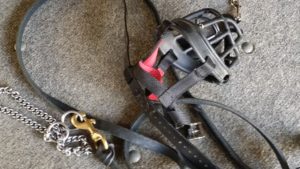How to choose a dog trainer
Some years ago, in a discussion of ethics and professionalism in an unregulated industry (that would be dog training), a wise and thoughtful colleague shared his checklist.
He’s not with us anymore, but his wisdom lives on.
Useful, too, for owners who are choosing a dog trainer to work with.
Shared here, with permission.
_____________________________________
A self-checklist outline of dog trainer ethics in a (currently) unregulated industry:
If you don’t have at least $1 million in liability insurance including care, custody, and control, get it before you go any farther in considering taking the job.
If you’re absolutely certain that you can fix the dog, you haven’t learned proper humility in the business yet. Don’t take the job.
If you’re giving the owner the impression that you can absolutely fix this and they’ll have complete peace of mind with the dog when you’re finished, you’re a liar (read master marketer) and shouldn’t take the job.
If you’re willing to take the job and just do what the owner wants done, you’re pandering. Don’t take the job.
If you think you’re going to know if you’ve truly fixed a biter with less than, say, 9 -12 months in a solid program, under greater provocation than any the dog has been exposed to, you don’t understand what thorough dog learning is. Don’t take the job.
If you don’t think you can fix at least 90% of the average house dog’s situational aggression problems by simply insisting that the dog hold his Bringsel firmly without dropping it, and/or by performing a sit/stay, down/stay (both meaning silently and without twitching and without constant verbal or ecollar ‘reminders’), then you don’t understand fundamental training and the importance of having a dog like this be mentally-focused. Don’t take the job.
If you think you’re going to modify a dog’s behavior without training him in some way (formal basic obedience), then you’ve been reading too many academic articles and not doing enough real work. Don’t take the job.
Unless you plan to have the dog perform a variety of off leash tasks safely for a period of 20 consecutive focused minutes in its three most provocative environments and ignoring all provocations, you don’t understand what you’re supposed to accomplish. Don’t take the job.
If you think you’re going to fix the problem by making buddies with the dog via food treats? Don’t take the job.
If you think there’s majik in, ‘Pppsssstt’ or that there’s such a thing as a Majik Finger Bite, then you’ve been watching too much TV. Don’t take the job.
If your first instinct in choosing equipment is a prong collar or an ecollar and you put it on without knowing how to wean the dog off, you don’t know enough about equipment to take the job and stay safe. And you’re pandering. Don’t take the job.
If the dog is medium sized or larger, go to Home Depot, buy 1 or 2 sacks of Portland cement approximating the dog’s weight, and have them tied together in an upright position. Now attach your leash to them and lift them up about 1/2″ off the ground at arm’s length while the store guy shakes them side to side. Keep them there for 30 seconds for each of at least 4 repetitions, timed about 1 – 2 seconds apart. At the conclusion, you can’t have any cement dust on the belly-front of your logo-ed polo shirt. If you can’t do that, you’ve flunked the physical on defensive handling. Don’t take any job bigger than a Bichon Frise.
If you haven’t learned how to safely handle at least three dogs that make all the hair stand up on the back of your neck, don’t take the job. You haven’t gotten enough experience in real scary dogs.
If you’re not prepared to walk the owner through fixing the problem without you touching the leash, don’t take the job. You don’t know that some dogs are going to take out anybody that’s new to them when they get too close. You haven’t learned that your job is to fix the problem, not show that you’re the master of all things leash. Besides, you probably have a communication problem, too.
